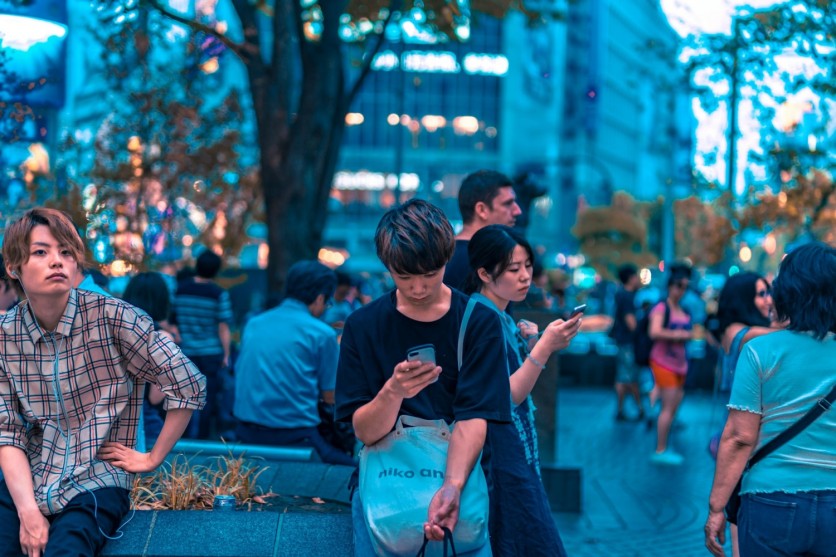
In a world where digital interactions increasingly shape our lives, it's easy to see why many people spend a significant portion of their day online. From staying in touch with friends to streaming the latest shows, technology offers an effortless way to stay connected and entertained. For Gen Z—those born between 1997 and 2012—the internet has been an ever-present force, providing them with a constant stream of social updates, news, and entertainment at their fingertips.
However, the constant allure of the digital world comes with its own set of challenges. Over time, many have started to question how much of their lives they want to dedicate to screen time. Interestingly, recent surveys show that 46% of Gen Z are actively trying to reduce their time spent online, sparking a conversation about how this shift may affect their mental health.
The Appeal of Constant Connectivity
It's no secret that being online offers countless benefits. Social media platforms like Instagram, TikTok, and Snapchat allow people to stay connected with their social circles, share experiences in real time, and create lasting memories. The fear of missing out (FOMO) is often the driving force behind our constant online engagement. After all, who wouldn't want to stay up-to-date with the latest trends, viral moments, or even what their friends are up to?
Moreover, streaming services, gaming, and online learning platforms have made it more convenient than ever to seek entertainment or self-improvement from the comfort of home. This access feels natural for Gen Z, who grew up with smartphones.
But as the novelty wears off, some have started to reflect on the impact of excessive screen time, realizing that constantly being online can damage their well-being.
Screen Time Across Generations
Each generation interacts with technology in different ways. For instance, baby boomers and Gen Xers often use screens for work, news consumption, and keeping in touch with family. Millennials balance between career-driven tech use and social media, while Gen Z, as digital natives, navigate a highly visual and fast-paced online world filled with memes, videos, and social media feeds.
However, while all generations are increasingly reliant on screens, some are becoming more mindful of their digital habits. According to a recent survey by ExpressVPN, Gen Z is leading the charge when it comes to limiting screen time, with 46% actively taking steps to cut down. Millennials follow closely at 41%. This behavior suggests a growing awareness of digital overload and its potential negative effects on mental health, such as anxiety, depression, and disrupted sleep.
On the other hand, the same survey reveals that nearly 70% of respondents across generations admitted to experiencing FOMO when they're offline for too long. It's a clear sign that while many are making efforts to reduce screen time, the fear of being left out still holds considerable influence.
Gen Z and Mental Health: A New Focus
Why are so many Gen Zers deciding to take control of their screen time? It likely ties back to the rising conversation around mental health. Over the past few years, there has been growing recognition of the ways excessive screen use—particularly on social media—can negatively impact emotional well-being. Endless scrolling and constant notifications can lead to feelings of inadequacy, isolation, and burnout.
By limiting screen time, Gen Z is showing a desire to regain control over their mental health, creating more space for in-person connections, self-care, and offline hobbies. Taking breaks from the digital world helps reduce stress, improve focus, and foster better sleep patterns, all of which contribute to a healthier, more balanced lifestyle.
This shift toward digital minimalism may signal a broader trend in how younger generations view their relationship with technology. Rather than being tethered to their devices, many are seeking to use tech more mindfully, engaging with it in ways that serve their goals and well-being.
How to Strike the Right Balance
Whether you're part of Gen Z or another generation, finding the right balance between digital engagement and real-world activities is key to protecting your mental health. If you're considering reducing your screen time, here are a few steps to help you get started:
- Set Screen Time Limits: Most smartphones and apps now offer built-in tools to monitor and limit your usage. These can help you stay mindful of how much time you're spending online each day.
- Schedule Digital Detoxes: Try setting aside specific periods where you disconnect entirely—whether it's for an hour each day or a whole weekend.
- Prioritize Offline Activities: Spend time on hobbies that don't involve screens, like reading, exercising, or catching up with friends in person.
- Stay Safe Online: Even if you're trying to cut back on screen time, it's essential to stay protected whenever you do go online. Using tools like a VPN can help protect your privacy and keep your data secure.
As you take steps to reduce your screen time, remember that the goal isn't to abandon technology altogether—it's about finding a balance that supports your well-being. Whether you're browsing online or taking a break from the digital world, be mindful of your choices and stay safe.
By embracing digital minimalism, Gen Z is setting an example for us all—showing that sometimes, the best way to improve our mental health is to disconnect from our screens and reconnect with the real world.
ⓒ 2026 TECHTIMES.com All rights reserved. Do not reproduce without permission.





